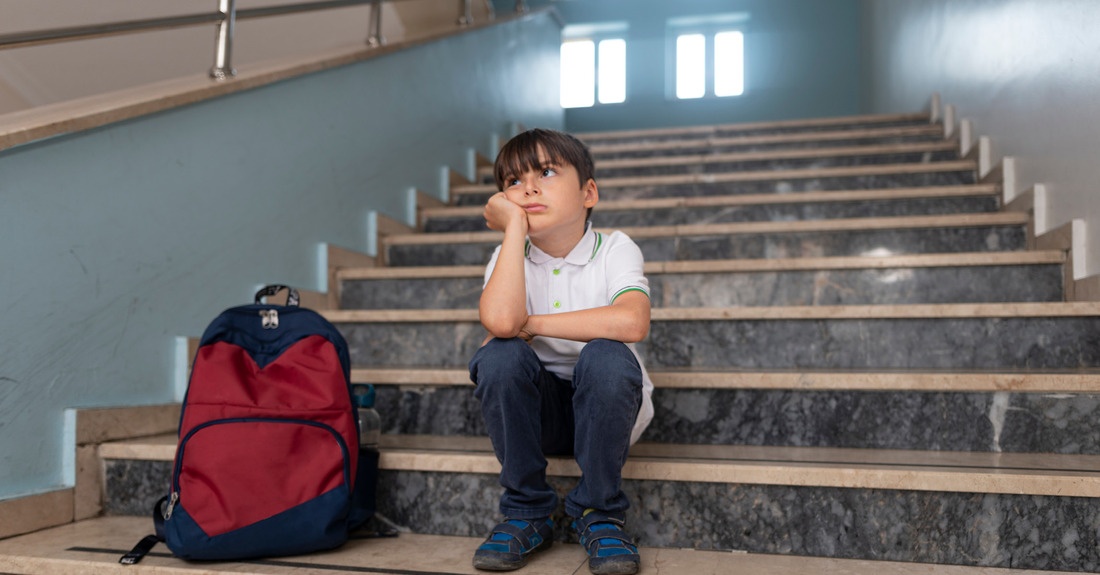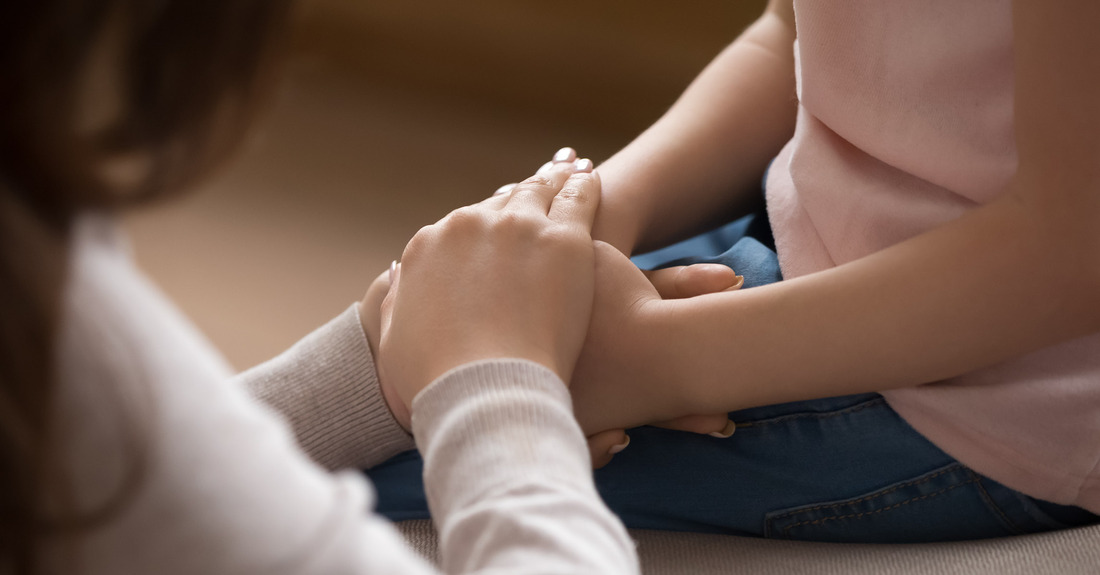
When we think about children’s growth, physical health often comes to mind. But children’s healthy development is much more than arguing about eating vegetables, ensuring they don’t have too much screen time and encouraging them to get active.
Kids’ mental health is an important part of overall well-being. What’s more, mental health can impact physical health. The importance of mental health in early childhood is so great that it should be considered just as crucial as physical development.
Why is mental development important in early childhood?
Kids’ mental health encompasses a child’s emotional, psychological and social well-being. It influences an individual’s perception of their life and the world around them as well as their ability to interact with those in their lives.
So why is children’s mental health important?
If a child’s mental health isn’t nourished and properly developed, it can affect their emotional regulation and ability to handle stress and negative stimuli during childhood and into the future. Not only that, but a lack of mental health development can lead to difficulty developing relationships with those around them and a dearth of social skills.
Mental health can affect a child’s physical growth, as well. Mental health difficulties can lead to short-term health problems, like headaches and muscle pains. It can also linked to chronic diseases, sleep problems, digestive and malnutrition issues, and more.
In fact, a study on the relationship between mental and physical health in kids ages 9 to 18 found an association between mood disorder diagnoses and higher rates of infectious diseases, respiratory issues and weight problems. To simplify, the kids and teens who were diagnosed with a mental health issue, like depression, were more likely to have a weakened immune system, making them more susceptible to viral and bacterial infections. Additionally, the study suggested that mood disorders could also increase the severity of allergies and asthma, which can be triggered by viral infections.
Not only did mood disorders, like depression and anxiety, cause decreased immune functioning, but those with a mental illness may also be more likely to have poor self-care, get less sleep and exercise, and have worse diets and other habits like substance use, all of which can negatively impact physical health.
Why is it important for brain development?
While it’s clear that mental health can affect a kid’s emotional and social health during childhood and into adolescence and adulthood, the impact of mental health on child development is so significant that it can also influence the brain itself.
A study found that kids who experienced adversity or trauma in early childhood had decreased rates of growth in the brain’s neocortex and increased growth in some subcortical areas. A lack of growth in the neocortex is associated with antisocial behaviors, and the increases in subcortical regions promote impulsive behaviors. This means that kids who experienced stress and adversity early in life could have more antisocial behaviors and a lack of impulse control, negatively affecting how they bond and act upon stress.
But kids’ mental health and the mental health of those around them can impact brain development even earlier than childhood.
In fact, the stress a woman experiences during pregnancy can alter fetal brain development and function later in life, meaning those who experience stress in utero could be more susceptible to mental health disorders like depression, according to another study.

At what age is 90% of the brain developed?
We know that mental health can affect brain development, but what ages are the most crucial?
A newborn’s brain is about 25% of the size of an adult brain. In the first year of life, the brain doubles in size. About 90% of the brain is developed by age 5, meaning those early years — often called developmental years — are so crucial to overall well-being.
Research shows that an adverse childhood experience (ACE) — trauma from a single event, abuse or neglect — experienced by a kid early in life has a direct impact on their mental health and mental well-being as an adult. In fact, some experts estimate that up to 21 million depression cases in adults may have been avoided if they hadn’t experienced an ACE.
If a child has adults in their life that act in a nurturing, compassionate way and champion their mental health, it has a direct positive impact on their mental health during developmental years and into adolescence and adulthood. When adults interact with babies and toddlers and comfort them when upset, they learn that someone is responsive to their needs. With time and healthy development, their brains learn to self-soothe and trust their environment and those around them. If they aren’t soothed when crying, they can become disconnected and don’t have the ability to connect with others, self-soothe, and develop emotional and behavioral regulation.
Studies even show that parental support during the preschool age — about 3 or 4 years old — can positively impact the brain’s hippocampal growth, leading to better emotion regulation in early adolescence.
How many stages of mental development are there?
Psychologist Jean Piaget’s theory on brain development stages by age include the following examples of cognitive development in early childhood.
- Sensorimotor stage: birth to 2 years old
- During this stage, kids learn through sensations and physical movements, like gentle touches, crawling and walking. They also learn through sensations and movement that objects are distinct things. For example, they can recognize people as certain individuals, like mom, dad, siblings, etc.
During this stage, babies and toddlers also learn to attach names to objects and that objects may still be present even if they cannot see them. For instance, they recognize and attach a name to a ball and can differentiate it from another toy. They also eventually learn that if they watch a blanket covering up a toy, the toy still exists under the blanket.
- During this stage, kids learn through sensations and physical movements, like gentle touches, crawling and walking. They also learn through sensations and movement that objects are distinct things. For example, they can recognize people as certain individuals, like mom, dad, siblings, etc.
- Preoperational stage: ages 2 to 7
- During this stage, kids learn through pretend play and can begin to understand symbolism, such as the idea that pictures and words represent objects. However, they still struggle to understand different points of view and logic.
For example, an adult may give the child a choice between two cookies of the same weight. One cookie may be thicker, while the other is flatter and more spread out. The child may choose the flatter cookie because it looks larger, not understanding that from another point of view, they can see both cookies are the same size.
- During this stage, kids learn through pretend play and can begin to understand symbolism, such as the idea that pictures and words represent objects. However, they still struggle to understand different points of view and logic.
- Concrete operational stage: ages 7 to 11
- Logical reasoning and understanding other viewpoints become easier for kids in this stage, though they may still struggle with abstract concepts and hypothetical thinking. Kids in this stage find it easiest to use logical reasoning during concrete events.
If you cut a sandwich into three parts, for example, they can logically reason that there is still the same overall amount of food as before the sandwich was segmented.
- Logical reasoning and understanding other viewpoints become easier for kids in this stage, though they may still struggle with abstract concepts and hypothetical thinking. Kids in this stage find it easiest to use logical reasoning during concrete events.
- Formal operational stage: ages 12 and up
- Abstract thinking and logical and hypothetical reasoning are much easier for kids and adolescents in the formal operational stage. They begin to think about and form opinions on moral, philosophical, ethical, social and political issues that require abstract thought.
So how do these stages relate to mental health? Young kids may not be able to fully understand the abstract concept of mental health and how it affects their overall well-being. However, if they aren’t supported in emotional, social and physical growth, their mental health may suffer, making it more difficult for them to go through these cognitive stages of development.
If your child or family needs mental health support, know that Heart of Iowa Community Services is here for you. Reach out at HICSIowa.org.
